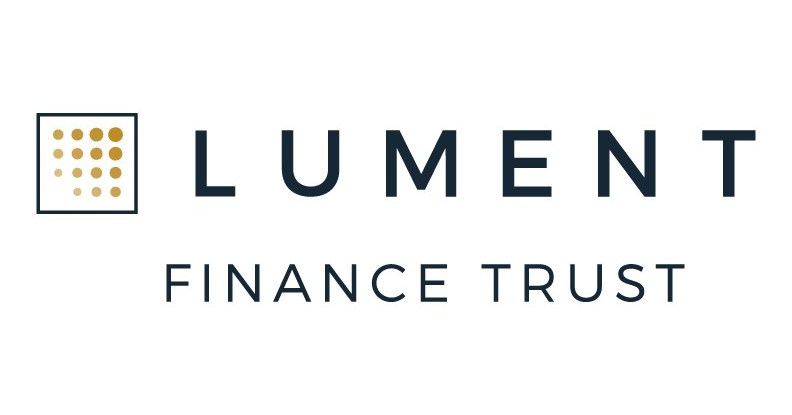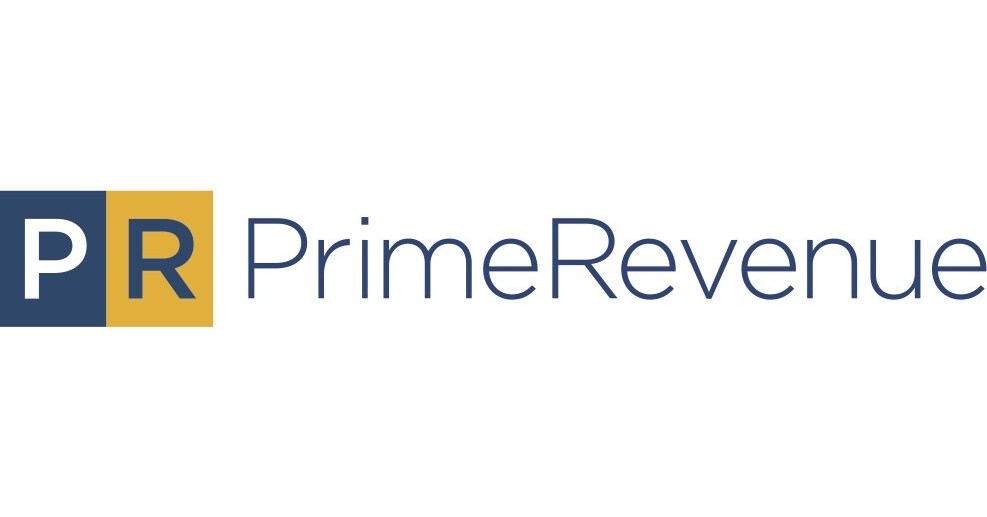Finance
Lument Finance Trust Reports Second Quarter Results

NEW YORK, Aug. 8, 2023 /PRNewswire/ — Lument Finance Trust, Inc. (NYSE: LFT) (“we,” “LFT” or “the Company”) today reported its second quarter 2023 results. Distributable earnings for the quarter were $1.9 million, or $0.04 per share of common stock. GAAP net income attributable to common shareholders for the quarter was $1.4 million, or $0.03 per share of common stock. The Company has also issued a detailed presentation of its results, which can be viewed at www.lumentfinancetrust.com.
Conference Call and Webcast Information
The Company will also host a conference call on Wednesday, August 9, 2023, at 8:30 a.m. ET to provide a business update and discuss the financial results for the second quarter of 2023. The conference call may be accessed by dialing 1-888-336-7151 (U.S.) or 1-412-902-4251 (international). Note: there is no passcode; please ask the operator to be joined into the Lument Finance Trust call. A live webcast, on a listen-only basis, is also available and can be accessed through the URL:
https://app.webinar.net/G3wzB3Pq64P
For those unable to listen to the live broadcast, a recorded replay will be available for on-demand viewing approximately one hour after the end of the event through the Company’s website https://lumentfinancetrust.com/ and by telephone dial-in. The replay call-in number is 1-877-344-7529 (U.S.) or 1-412-317-0088 (international) with passcode 6083439.
Non-GAAP Financial Measures
In this release, the Company presents certain financial measures that are not calculated according to generally accepted accounting principles in the United States (“GAAP”). Specifically, the Company is presenting distributable earnings, which constitutes a non-GAAP financial measure within the meaning of Item 10(e) of Regulation S-K and is net income under GAAP. While we believe the non-GAAP information included in this press release provides supplemental information to assist investors in analyzing our results, and to assist investors in comparing our results with other peer issuers, these measures are not in accordance with GAAP, and they should not be considered a substitute for, or superior to, our financial information calculated in accordance with GAAP. The methods of calculating non-GAAP financial measures may differ substantially from similarly titled measures used by other companies. Our GAAP financial results and the reconciliations from these results should be carefully evaluated.
Distributable Earnings
Distributable Earnings is a non-GAAP measure, which we define as GAAP net income (loss) attributable to holders of common stock computed in accordance with GAAP, including realized losses not otherwise included in GAAP net income (loss) and excluding (i) non-cash equity compensation, (ii) depreciation and amortization, (iii) any unrealized gains or losses or other similar non-cash items that are included in net income for that applicable reporting period, regardless of whether such items are included in other comprehensive income (loss) or net income (loss), and (iv) one-time events pursuant to changes in GAAP and certain material non-cash income or expense items after discussions with the Company’s board of directors and approved by a majority of the Company’s independent directors. Distributable Earnings mirrors how we calculate Core Earnings pursuant to the terms of our management agreement between our Manager and us, or our Management Agreement, for purposes of calculating the incentive fee payable to our Manager.
While Distributable Earnings excludes the impact of any unrealized provisions for credit losses, any loan losses are charged off and realized through Distributable Earnings when deemed non-recoverable. Non-recoverability is determined (i) upon the resolution of a loan (i.e. when the loan is repaid, fully or partially, or in the case of foreclosures, when the underlying asset is sold), or (ii) with respect to any amount due under any loan, when such amount is determined to be non-collectible.
We believe that Distributable Earnings provides meaningful information to consider in addition to our net income (loss) and cash flows from operating activities determined in accordance with GAAP. We believe Distributable Earnings is a useful financial metric for existing and potential future holders of our common stock as historically, over time, Distributable Earnings has been a strong indicator of our dividends per share of common stock. As a REIT, we generally must distribute annually at least 90% of our taxable income, subject to certain adjustments, and therefore we believe our dividends are one of the principal reasons stockholders may invest in our common stock. Furthermore, Distributable Earnings help us to evaluate our performance excluding the effects of certain transactions and GAAP adjustments that we believe are not necessarily indicative of our current loan portfolio and operations and is a performance metric we consider when declaring our dividends.
Distributable Earnings does not represent net income (loss) or cash generated from operating activities and should not be considered as an alternative to GAAP net income (loss), or an indication of GAAP cash flows from operations, a measure of our liquidity, or an indication of funds available for our cash needs.
GAAP to Distributable Earnings Reconciliation
|
Three months Ended |
|||||
|
June 30, 2023 |
|||||
|
Reconciliation of GAAP to non-GAAP Information |
|||||
|
Net Income attributable to common shareholders |
$ 1,389,185 |
||||
|
Adjustments for non-Distributable Earnings |
|||||
|
Unrealized losses (gains) on mortgage servicing rights |
(206) |
||||
|
Unrealized provision for credit losses |
555,083 |
||||
|
Subtotal |
554,877 |
||||
|
Other Adjustments |
|||||
|
Recognized compensation expense related to restricted common stock |
2,836 |
||||
|
Adjustment for income taxes |
223 |
||||
|
Subtotal |
3,059 |
||||
|
Distributable Earnings |
$ 1,947,121 |
||||
|
Weighted average shares outstanding – Basic and Diluted |
52,231,152 |
||||
|
Distributable Earnings per weighted share outstanding – Basic and Diluted |
$ 0.04 |
About LFT
LFT is a Maryland corporation focused on investing in, financing and managing a portfolio of commercial real estate debt investments. The Company primarily invests in transitional floating rate commercial mortgage loans with an emphasis on middle-market multi-family assets.
LFT is externally managed and advised by Lument Investment Management LLC, a Delaware limited liability company.
Additional Information and Where to Find It
Investors, security holders and other interested persons may find additional information regarding the Company at the SEC’s Internet site at http://www.sec.gov/ or the Company website www.lumentfinancetrust.com or by directing requests to: Lument Finance Trust, 230 Park Avenue, 20th Floor, New York, NY 10169, Attention: Investor Relations.
Forward-Looking Statements
Certain statements included in this press release constitute forward-looking statements intended to qualify for the safe harbor contained in Section 27A of the Securities Act of 1933, as amended, and Section 21E of the Securities Exchange Act, as amended. Forward-looking statements are subject to risks and uncertainties. You can identify forward-looking statements by use of words such as “believe,” “expect,” “anticipate,” “project,” “estimate,” “plan,” “continue,” “intend,” “should,” “may,” “will,” “seek,” “would,” “could,” or similar expressions or other comparable terms, or by discussions of strategy, plans or intentions. Forward-looking statements are based on the Company’s beliefs, assumptions and expectations of its future performance, taking into account all information currently available to the Company on the date of this press release or the date on which such statements are first made. Actual results may differ from expectations, estimates and projections. You are cautioned not to place undue reliance on forward-looking statements in this press release and should consider carefully the factors described in Part I, Item IA “Risk Factors” in the Company’s Annual Report on Form 10-K for the year ended December 31, 2022, which is available on the SEC’s website at www.sec.gov, and in other current or periodic filings with the SEC, when evaluating these forward-looking statements. Forward-looking statements are subject to substantial risks and uncertainties, many of which are difficult to predict and are generally beyond the Company’s control. Except as required by applicable law, the Company disclaims any intention or obligation to update or revise any forward-looking statements, whether as a result of new information, future events or otherwise.
SOURCE Lument Finance Trust, Inc.

Finance
Financial Services Legislation Is in the Spotlight as the 119th Congress Settles In | PYMNTS.com

The 119th Congress has now been seated, and is poised to consider, to take up — or to scuttle — financial services legislation that may touch on everything from credit cards to earned wage access (EWA) to digital assets.
The incoming majorities belong to the Republicans, of course, and it’s no secret that president-elect Trump and other members of his party have expressed misgivings about the Federal Deposit Insurance Corp. (FDIC) and the Consumer Financial Protection Bureau (CFPB), and the roles and scope of those agencies are as yet undetermined.
The House Financial Services Committee now is being chaired by Rep. French Hill, R-Ark. The Senate Banking Committee is being chaired by Sen. Tim Scott, R-S.C.
What May Be Up
As for what may still be considered “outstanding”:
Front and center will be what happens with the Credit Card Competition Act. It’s been a long road for the CCCA, which, among other things, would enable card payments to be routed over at least one network that competes with Mastercard and Visa. Since being introduced in 2023, the act has been stalled in Congress, and should it be taken up again, there’s no surety that it would make it through into law, but it may indeed come up for debate. Now vice president-elect JD Vance had signed on to the bill.
At issue will be the ways in which the bill would change the dynamics of the card industry. Supporters say that the routing provisions would open up competition. But as Karen Webster noted in a recent column, “Notwithstanding a lack of understanding of how dual routing would work for credit card transactions, the flaw in Sen. Durbin’s bill is a lack of understanding of how the current credit card ecosystem works. And, more fundamentally, how platform ecosystems ignite and scale — and are monetized.”
Separately, the Earned Wage Access Consumer Protection Act would define EWA providers and sets strict operational boundaries, specifically regulating both employee-sponsored programs and direct-to-consumer offerings.
Digital Assets
There have been various attempts to have legislation that would set frameworks for digital asset markets to be structured. One bill, the Financial Innovation and Technology for the 21st Century Act passed in the House but did not make it through the Senate. The act would, among other things, set standards for digital assets and consumer protections, and segregation of funds.
Crypto and artificial intelligence (AI), of course, will also be on the agenda.
In an interview with PYMNTS, Mike Katz, a partner in Manatt, Phelps and Phillips Financial Services Group, said that “despite the razor-thin Republican majorities, there is a growing bipartisan consensus in Congress around the need for thoughtful, innovation-focused crypto and AI legislation,” adding, “It will be interesting to see if any digital asset bills are part of the tax-and-border-focused reconciliation package already being discussed in Congress. I’d expect a strong stablecoin bill to move quickly given existing bipartisan support.”
And he added: “Keep an eye out early in 2025 for a repurposed or chopped up version of the pro-crypto bill FIT21 [which passed the House with a large bipartisan majority in May]. Regardless of form or timing, new legislation will finally provide clarity on the questions of whether crypto assets are ‘securities’ or ‘commodities’ … and on which regulatory authority is charged with oversight.”
Finance
Protecting Your Future: How Cognitive Decline Affects Financial Decision-Making | University of Denver

RadioEd co-host Emma Atkinson sits down with medical doctor and finance expert Eric Chess to break down why financial decisions can be an early indicator of cognitive decline.
Podcast •
News •
Hosted by Jordyn Reiland and Emma Atkinson, RadioEd is a triweekly podcast created by the DU Newsroom that taps into the University of Denver’s deep pool of bright brains to explore the most exciting new research out of DU. See below for a transcript of this episode.
Show Notes
As we get older, things change. Our priorities shift, viewpoints and opinions evolve, and our bodies—and brains—age.
Many of these changes are good—we can celebrate the process of aging as one that invites wisdom and joy. But there are natural consequences of getting older, and one of those consequences is cognitive decline.
Eric Chess is a former medical doctor who has also earned degrees in law and business. Chess is the director of the Paul Freeman Financial Security Program at DU. He seeks to identify the earliest signs of cognitive impairment—and works to protect the lives and financial assets of older people experiencing cognitive decline.
Dr. Eric Chess is a physician, lawyer and professor with a focus on prevention, comprehensive well-being, financial security and older adults. He has over a decade of
experience in internal medicine practice (board certified), as a hospitalist and as an outpatient physician. He is currently a Clinical Professor at the University of Denver’s Knoebel Institute for Healthy Aging, serving as the founder and director of Aging and Well-being/The Paul Freeman Financial Security Program. Additionally, he serves as an adjunct Professor at the University of Denver’s Sturm College of Law and Daniels College of Business. Dr. Chess has an undergraduate degree in economics and political science, and a graduate law degree with experience as an attorney and economic consultant.
The Knoebel Institute for Healthy Aging creates and implements solutions for aging issues through multidisciplinary research, education and outreach by serving as an information clearinghouse for media on matters related to aging; educating and training a diverse workforce to serve a rapidly aging population; and promoting innovation, research and business development related to aging.
The Paul Freeman Financial Security Program combines the expertise of faculty, researchers and students at the University of Denver. Their interdisciplinary team of researchers in law, finance, psychology, social work, business, neuroscience, and medicine is led by Eric Chess, MD, JD. Goals of impact include four main areas: Research and Development; Outreach and Collaboration; Education; and Policy. Part of the program’s core mission is to address the need for more impactful solutions regarding financial exploitation and fraud of older adults. Target areas currently include developing a financial vulnerability scale, leading a state-wide collaboration, developing a financial-protective team legal instrument, and addressing the significant transfer of wealth affecting older adults and potential future generations and clients.
More Information:
Finance
PrimeRevenue Wins 2025 Global Finance Award

“The global supply chain finance sector continues to experience significant growth, driven by the increasing need for efficient cash-flow solutions and the adoption of digital platforms to streamline operations,” Joseph Giarraputo, publisher and editorial director of Global Finance, stated in a press release announcing the winners. “The honorees for our Best Supply Chain Finance awards met the challenges of evolving trade dynamics while seizing opportunities for their clients.”
Over the past year, PrimeRevenue’s full stack of solutions facilitated funding partners’ management of over $25B of assets on a day-to-day basis, accelerated payments on more than 12.5M invoices, and enabled suppliers to get paid 80 days early on average. In addition, PrimeRevenue recently launched a comprehensive Payments-as-a-Service (PaaS) solution, designed to help businesses improve operational efficiency, enhance security and unlock valuable working capital.
“This industry recognition is a testament to the dedication, tenacity and innovation of our team,” said PJ Bain, CEO, PrimeRevenue. “At PrimeRevenue we take pride in our commitment to our customers, and in the values—performance, respect, innovation, diversity, excellence and integrity—that we strive to embody every day. Those values are ingrained in our culture, and serve as a North Star as we continue to level up and expand our services in working capital and payments in the U.S. and across the globe.”
PrimeRevenue will attend the Global Finance Awards ceremony, which takes place during the closing luncheon of the BAFT Europe Bank-to-Bank Forum on March 12 in Amsterdam.
About PrimeRevenue
As a pioneer in global B2B payments, the PrimeRevenue platform connects the entire supply chain by improving working capital and automating digital payments. Thousands of companies around the world leverage one streamlined platform to increase payment visibility, enhance control, and improve cash flow. PrimeRevenue is headquartered in Atlanta, with offices in London, Prague, Hong Kong, and Melbourne. Learn more at www.primerevenue.com and connect with us on Twitter @primerevenue and LinkedIn https://www.linkedin.com/company/primerevenue/.
Media Contact
Melissa Banks, PrimeRevenue, 1 406-599-1648, [email protected], primerevenue.com
SOURCE PrimeRevenue
-

 Business7 days ago
Business7 days agoThese are the top 7 issues facing the struggling restaurant industry in 2025
-

 Culture7 days ago
Culture7 days agoThe 25 worst losses in college football history, including Baylor’s 2024 entry at Colorado
-

 Sports7 days ago
Sports7 days agoThe top out-of-contract players available as free transfers: Kimmich, De Bruyne, Van Dijk…
-

 Politics5 days ago
Politics5 days agoNew Orleans attacker had 'remote detonator' for explosives in French Quarter, Biden says
-

 Politics5 days ago
Politics5 days agoCarter's judicial picks reshaped the federal bench across the country
-

 Politics3 days ago
Politics3 days agoWho Are the Recipients of the Presidential Medal of Freedom?
-

 Health2 days ago
Health2 days agoOzempic ‘microdosing’ is the new weight-loss trend: Should you try it?
-

 World7 days ago
World7 days agoIvory Coast says French troops to leave country after decades


















